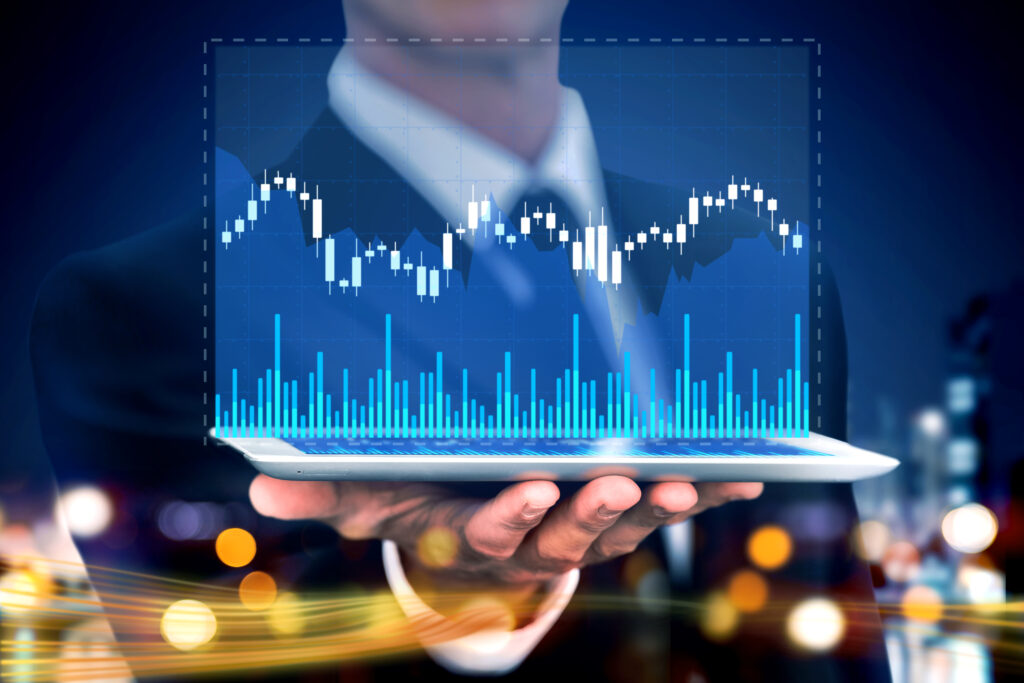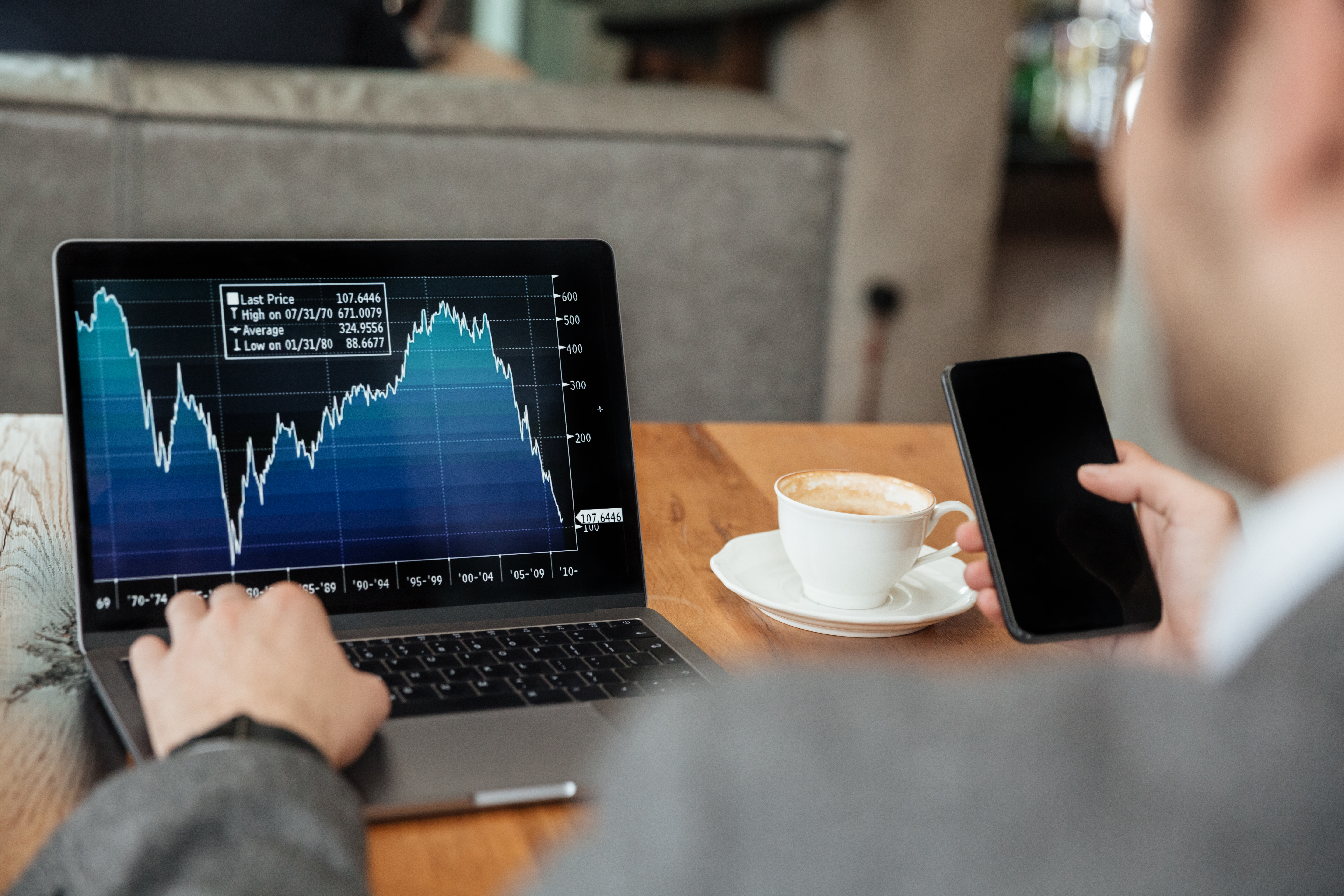Investment trading has come a long way from the days of floor trading and ticker tapes. Today, the financial markets are more accessible and complex, driven by technological advancements that provide traders with unparalleled tools and insights. AI investment trading is not just a buzzword but a reality that is reshaping the landscape of financial markets. Today, we will learn about the realm of AI investment trading, exploring its benefits, challenges, and future potential.
Page Contents
Understanding AI in Investment Trading
Artificial intelligence stands for the simulation of human intelligence in machines that are programmed to think, work, and learn like humans. In the context of AI investment trading, it involves using algorithms and machine learning techniques to analyze vast amounts of data, recognize patterns, and make trading decisions with minimal human intervention.

AI investment trading can be categorized into several key areas:
1. Algorithmic Trading
This involves using pre-programmed instructions (algorithms) to execute trades at high speeds and volumes. These algorithms can be based on various criteria such as price, timing, or market conditions.
2. Machine Learning and Predictive Analytics
Machine learning algorithms of AI tools analyze historical data of a few years to predict future market movements. These models can continuously improve by learning from new data, making them highly adaptive.
3. Natural Language Processing (NLP)
NLP is used to analyze news, social media, and other textual data sources to gauge market sentiment and make informed trading decisions.
4. Robotic Process Automation (RPA)
RPA automates repetitive tasks such as data entry, reconciliation, and reporting, allowing traders to focus on strategy development and execution.
Benefits of AI in Investment Trading
Numerous advantages are offered by AI investment trading that make it an attractive option for traders and investors:
1. Speed and Efficiency
AI systems can process and analyze data at incredible speeds, far surpassing human capabilities. This allows for real-time decision-making and execution, which is crucial in fast-moving markets.
2. Accuracy and Precision
By eliminating human errors and biases, AI can enhance the accuracy of trading decisions. Algorithms follow predefined rules consistently, ensuring precision in trade execution.
3. Scalability
AI-powered trading systems are capable of handling large volumes of data and transactions altogether to deliver efficient results. This scalability is essential for managing diverse portfolios and trading across multiple markets.
4. Cost-Effectiveness
Automation reduces the need for human intervention, leading to lower operational costs. Additionally, AI can identify cost-saving opportunities by optimizing trading strategies and minimizing transaction fees.
5. Advanced Analytics
AI can uncover hidden patterns and correlations in data that may not be apparent to human analysts. This deeper insight enables the development of sophisticated trading strategies.
6. Emotion-Free Trading
AI systems operate based on data and logic, devoid of emotions like fear and greed that can influence human traders. This leads to more rational and disciplined trading.
Challenges of AI Investment Trading
Despite its advantages, AI investment trading is not without challenges:
1. Data Quality and Availability
AI systems demand high-quality data to function efficiently and effectively. Inaccurate, incomplete, or outdated data can lead to erroneous predictions and decisions.
2. Model Risk
Machine learning models are only as good as the data and assumptions they are built on. There is a risk of overfitting, where models perform well on historical data but fail to generalize to new, unseen data.
3. Regulatory and Ethical Concerns
AI investment trading raises regulatory and ethical issues, such as market manipulation and fairness. Regulators are still grappling with how to effectively oversee AI-driven trading activities.
4. Cybersecurity Risks
The reliance on digital systems makes AI trading platforms vulnerable to cyberattacks. Ensuring robust cybersecurity measures is critical to protect sensitive data and trading infrastructure.
5. Dependence on Technology
Over-reliance on AI systems can be problematic if there are technological failures or outages. Human oversight is still necessary to manage and mitigate such risks.
Real-World Applications of AI in Investment Trading
AI is being utilized in various ways across the financial industry, transforming how trading is conducted. Here are some notable applications:
1. High-Frequency Trading (HFT)
HFT firms use AI to execute thousands of trades per second, capitalizing on minute price discrepancies. AI algorithms analyze market data and execute trades at lightning speeds, generating profits from small price movements.
2. Quantitative Trading
Quantitative traders use AI to develop and test complex mathematical models that drive trading strategies. These models analyze historical data and identify patterns to predict future price movements.
3. Sentiment Analysis
AI-powered sentiment analysis tools scan news articles, social media posts, and other textual data to gauge market sentiment. Traders use this information to make informed decisions based on the collective mood of the market.
4. Risk Management
AI algorithms assess and manage risk by analyzing market conditions, portfolio performance, and potential threats. This helps in optimizing portfolio allocation and minimizing exposure to adverse market events.
5. Robo-Advisors
Robo-advisors use AI to provide automated investment advice and portfolio management services to retail investors. These platforms create personalized investment plans based on individual risk tolerance and financial goals.
Future Trends in AI Investment Trading
The future of AI investment trading looks promising, with several trends likely to shape the industry:
1. Integration with Blockchain Technology
Combining AI with blockchain can enhance transparency, security, and efficiency in trading. Smart contracts and decentralized finance (DeFi) platforms are areas where this integration can have a significant impact.
2. Development of Explainable AI (XAI)
Explainable AI aims to make AI decision-making processes more transparent and understandable. This is crucial for gaining regulatory approval and building trust with traders and investors.
3. Personalized Trading Strategies
Advances in AI will enable the creation of highly personalized trading strategies tailored to individual preferences and goals. This customization can enhance user satisfaction and investment outcomes.
4. AI in Alternative Data Analysis
AI will increasingly be used to analyze alternative data sources, such as satellite imagery, consumer behavior, and environmental factors. This data can provide unique insights and competitive advantages in trading.
How to Get Started with AI Investment Trading
For those interested in leveraging AI investment trading, here are some steps to get started:
1. Educate Yourself
Learn about the basics of AI, machine learning, and their applications in finance. There are numerous online courses, books, and resources available to help you understand the fundamentals.
2. Choose the Right Tools
Select AI-powered trading platforms and tools that suit your needs. Look for platforms with user-friendly interfaces, robust security features, and positive user reviews.
3. Develop a Strategy
Start by developing a simple trading strategy and gradually incorporate AI elements. Use historical data to backtest your strategy and refine it based on the results.
4. Monitor and Adjust
Regularly monitor your AI trading system and make adjustments as needed. Keep an eye on market conditions, data quality, and model performance to ensure optimal results.
5. Stay Informed
The field of AI investment trading is constantly evolving. Stay updated with the latest developments, trends, and regulatory changes to keep your trading strategies relevant and effective.
Conclusion
AI investment trading represents a significant leap forward in the financial markets, offering unparalleled speed, accuracy, and efficiency. While there are challenges to overcome, the benefits of AI-driven trading systems are undeniable. As technology continues to advance, AI will play an increasingly vital role in shaping the future of investment trading.
By understanding the principles of AI, selecting the right tools, and staying informed about industry trends, traders and investors can harness the power of AI to enhance their trading strategies and achieve greater success in the financial markets. The future of trading is here, and it is driven by the intelligent algorithms and predictive power of artificial intelligence.

